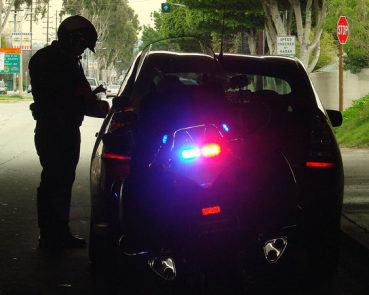Sec. 37. RCW 46.61.506 and 2010 c 53 s 1 are each amended to read as follows:
(1) Upon the trial of any civil or criminal action or proceeding arising out of acts alleged to have been committed by any person while driving or in actual physical control of a vehicle while under the influence of intoxicating liquor or any drug, if the person's alcohol concentration is less than 0.08 or the person's THC concentration is less than 5.00, it is evidence that may be considered with other competent evidence in determining whether the person was under the influence of intoxicating liquor or any drug.
(2)(a) The breath analysis of the person's alcohol concentration shall be based upon grams of alcohol per two hundred ten liters of breath.
(b) The blood analysis of the person's THC concentration shall be based upon nanograms per milliliter of whole blood.
(c) The foregoing provisions of this section shall not be construed as limiting the introduction of any other competent evidence bearing upon the question whether the person was under the influence of intoxicating liquor or any drug.
(3) Analysis of the person's blood or breath to be considered valid under the provisions of this section or RCW 46.61.502 or 46.61.504 shall have been performed according to methods approved by the state toxicologist and by an individual possessing a valid permit issued by the state toxicologist for this purpose. The state toxicologist is directed to approve satisfactory techniques or methods, to supervise the examination of individuals to ascertain their qualifications and competence to conduct such analyses, and to issue permits which shall be subject to termination or revocation at the discretion of the state toxicologist.
Frequently Asked Questions:
When can adults legally possess and use marijuana?
As of December 6, 2012, adults age 21 and over in Washington state can no longer be arrested under state law for possessing limited amounts of marijuana.
How much marijuana can adults legally possess under I-502?
Under Washington law, adults can possess 1 oz. of useable marijuana, 16 oz. of marijuana-infused product in solid form, and 72 oz. of marijuana-infused product liquid form.
Can I grow marijuana at home?
No. Unless you are an authorized medical marijuana patient under Washington law, home growing is not allowed.
When can marijuana retail outlets sell marijuana?
The Washington State Liquor Control Board, Department of Agriculture, and Department of Health will have until December 1, 2013 to complete rulemaking that will create a system to license and regulate the production, processing, and sale of marijuana. Commercial businesses can be set up after rulemaking is complete and once a license is obtained.
Where will stores be located?
Licenses will authorize stand-alone marijuana businesses, with similar restrictions to the old state liquor stores. Marijuana stores must be located at least 1,000 feet away from schools and parks. The number of marijuana store licenses will also be determined in rulemaking.
Does I-502 change Washington's medical marijuana law?
No. Washington's Medical Use of Cannabis Act remains unchanged.
Can marijuana be used in public?
It will remain unlawful under Washington law to use marijuana in pubic. Similar to a traffic offense, violations will result in a civil infraction bringing a fine but not arrest.
Can a prospective employee still be drug tested for marijuana when applying for a job?
I-502 does not change Washington state employee law, which allows for employment drug testing in some situations.
How do the DUI provisions work under I-502?
I-502 creates a standard for marijuana impairment while driving, similar to the .08 cut-off for alcohol. The DUI provisions focus on active THC in one's system that can impair a drivers and not inactive marijuana metabolites that do not cause impairment. As is currently the law, an officer will need to have probable cause for an arrest and reasonable grounds to believe a driver is impaired before requiring a breath or blood test. Nor does it change the fact that blood tests can only be administered by medical professionals.
How will federal government respond to I-502?
Proponent of the new law look forward to working with federal officials in a spirit of collaboration and cooperation to ensure that it is fairly implemented. The law's tightly regulated system will improve public safety and increase respect for law enforcement. We hope that federal officials will respect the will of our state's voters and not enforce federal laws against Washington residents who are obeying state law.
When does I-502 take effect?
Here is a summary of important dates for implementation of I-502:
- December 6th, 2012: Initiative 502 goes into effect.
On this date it will be legal for adults 21 and over to possess limited amounts of marijuana under Washington law. I-502's Driving Under the Influence provisions will also take effect.
- December 1st, 2013: Rulemaking Must Be Completed.
The Washington State Liquor Control Board, Department of Agriculture, and Department of Health must conduct rulemaking as specified by I-502 to set up a system to license and regulate the production, processing, and sale of marijuana. No commercial business can be set up until rule making is complete and license are obtained.
- September 1st, 2015: Evaluation
The Washington State Institute for Public Policy must provide legislature with a preliminary evaluation and recommendations regarding the cost-benefit outcomes of I-502. Additional evaluations will be produced in 2017, 2022, and 2032.
- TBD: Tax Rate Adjustment Recommendations
The Washington State Liquor Control Board shall review I-502 tax levels and make recommendations to the legislature regarding adjustments that would further the goal of discouraging use while undercutting illegal market prices.









